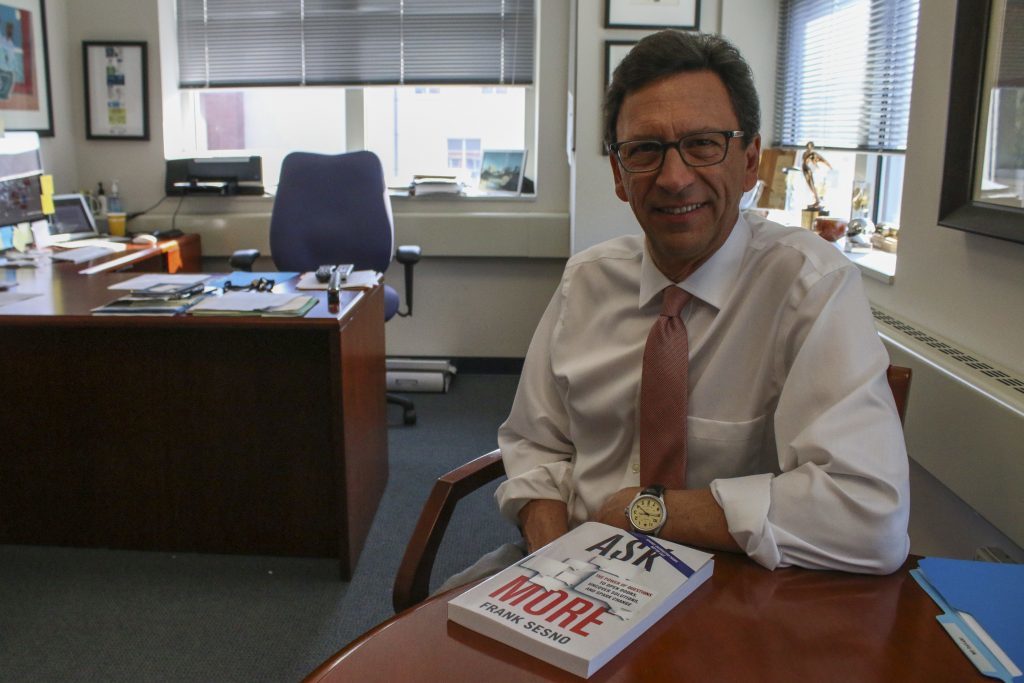Winners of an annual storytelling competition hosted at GW will win a trip to the Amazon for the first time this summer.
Frank Sesno, the director of the School of Media and Public Affairs, will take a small group of students interested in sustainability to the Brazilian rainforest this June for a week-long “biodiversity storytelling expedition,” he said. The trip is the grand prize for this year’s Storyfest, an environmental storytelling competition Sesno runs through his organization Planet Forward.
Sesno will lead the trip with Thomas Lovejoy, a professor of environmental science at George Mason University, and a group of climate scientists.
The group will first travel to Manaus, a city in the Amazon rainforest, and then to Camp 41, an off-the-grid environmental research camp in the Brazilian rainforest that Lovejoy founded, Sesno said.
“We will sleep in hammocks, get up at 4 o’clock in the morning and go to the tree canopy to see what the rainforest looks like as the sun rises,” he said.
Sesno said students will turn their experiences and observations of the “rich biodiversity of the rainforest” into stories to bring back to the U.S.
“This prize and trip is intended to reward great storytelling and get more on the premise that great storytelling rewards and inspires and truly moves the planet forward, in my view,” he said.
Past prizes have included cash and a trip to the United Nations headquarters, but this will be the first year that the winners will be rewarded with an immersive experience, he added.
Lovejoy said he travels to Camp 41 two or three times a year with students pursuing master’s or doctoral degrees in environmental studies. This is the first time he will be going to the rainforest with Sesno and undergraduate students.
Lovejoy, who has spent 38 years researching forest fragmentation in the rainforest, will be showing the group around Camp 41, through the rainforest in the central Amazon and all the way to The Guianas, a region along the northeast coast of South America.
“You can’t come away from this experience without a deep appreciation for biodiversity and the reality that this planet we live on is actually a living planet, and biology plays a really important role,” Lovejoy said.
Lovejoy said he hopes the trip deepens and enlarges students’ understandings of the rainforest and biology, and that it will recruit “young ambassadors” for the Amazon. Master’s and Ph.D. students have had rewarding experiences on past trips, he said.
“This trip usually changes their lives,” he said. “They become engaged on Amazon issues in perpetuity.”
Javier Ponce, an architect in Spain, was a Storyfest winner in 2016. While studying for his master’s degree in architecture at the Institute of Advanced Architecture of Catalonia, he found the contest online and submitted his winning video, “Smart Floating Farms,” about producing food closer to growing cities using solar energy.
Ponce said the prize trip to Brazil will be an important trip for winners and will encourage them to think about ways to tell stories about the environment in the future.
“It will certainly be a great experience to get to see with their own eyes biodiversity while learning from amazing people,” Ponce said in an email. “One of the important things of being a Storyfest winner is to realize you can contribute to make the world a better place while sharing with other colleagues.”
Andrew Goudsward contributed reporting.





